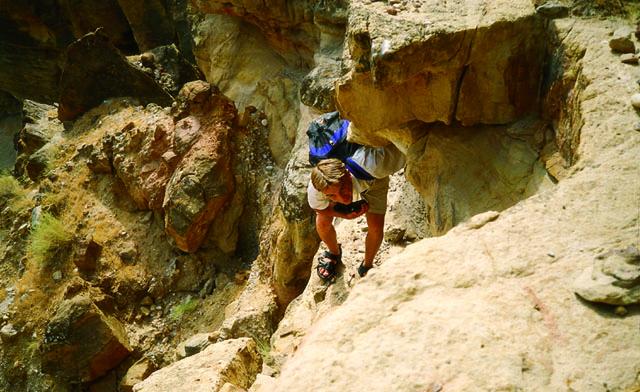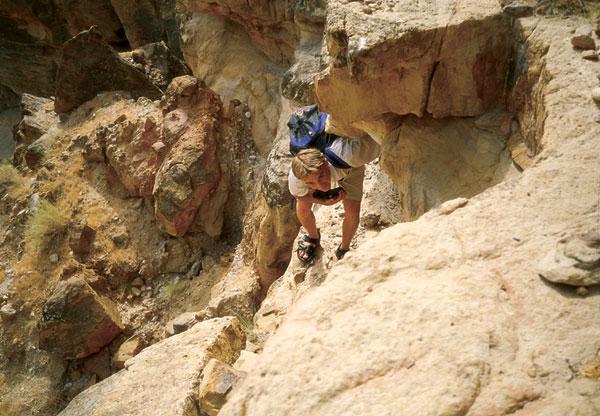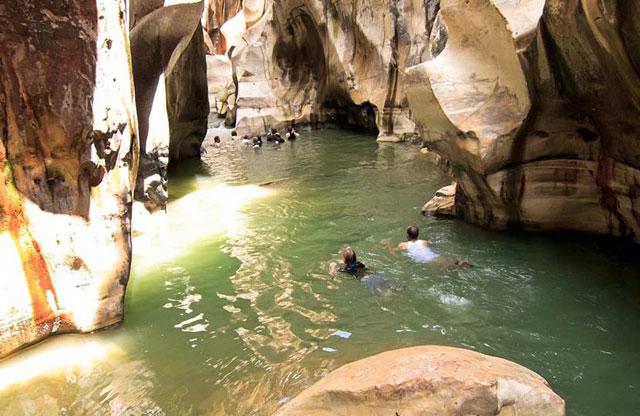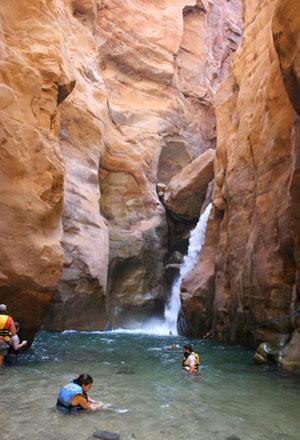You are here
Mujib reserve opens for new adventure season
By Hana Namrouqa - Apr 08,2015 - Last updated at Apr 08,2015

AMMAN — Heavy rain during the winter created two new ponds in the Siq Trail at the Mujib Biosphere Reserve, which has reopened for another adventure season, reserve director, Hisham Dheisat, said on Wednesday.
Water trails at the reserve changed during winter, as heavy rain and flash floods raised water levels and created new ponds, with the floods also bringing soil, Dheisat said.
“The two new ponds at the Siq Trail are now three-metres deep and their length ranges between 100 and 150 centimetres. In addition, heavy downpour and flash floods during winter also washed away pathways on the remaining trails,” Dheisat told The Jordan Times.
Due to the changes to the Siq Trail, the Royal Society for the Conservation of Nature (RSCN), which manages the country’s nature reserves, have introduced new and stricter safety measures.
“We assume that all visitors can’t swim and that they are here for the first time; therefore, visitors are briefed on the trail they are about to take and are provided with life vests, which they are not allowed to take off while in the water trails,” Dheisat noted.
The Mujib Biosphere Reserve features four trails, one of which is the Ibex Trail, which is dry, while the rest, including the Siq Trail, the Canyon Trail and the Malqi Trail are water trails, according to the RSCN.
“A total of 17,000 tourists visited the reserve last year, two-thirds of whom were Jordanians,” Dheisat said, highlighting that the majority of visitors select the Siq Trail, a self-guided and easy to moderate water trail.
He added that both the Canyon and Malaqi trails, which require a guide and are moderate to difficult water trails, are still closed to visitors.
“The two trails are still closed because the pathways and roads leading to them were washed out with the heavy rain. We are working on opening the roads and will open the two trails to visitors within 10 days,” the reserve manager highlighted.
A growing ecotourist destination for hiking and camping, the Mujib reserve is home to high-altitude summits and waterfalls. It closes every winter due to flash floods and rising water levels in its valleys and trails, reopening in spring.
Ropes that assist visitors hiking along the water valleys and up the waterfalls, as well as warning signs at dangerous locations, and the deployment of lifeguards and Civil Defence Department personnel on weekends are standard safety measures at the reserve.
Before the start of every adventure season, a specialised safety team is dispatched to the reserve to inspect the condition of the trails and to re-evaluate their risk levels.
Covering an area of 220 square kilometres, the Mujib Biosphere Reserve is home to seasonal and permanent rivers that flow through several valleys, as well as ponds and waterfalls.
Three large catchments — Wadi Mujib, Wadi Hidan and Wadi Zarqa — characterise the area’s complex drainage system with its permanent water flow throughout the year.
The richest vegetation is found in the wadi beds, including oleander, palm, wild fig and tamarix trees, as well as reed beds along riverbanks, according to the RSCN.
Surveys indicate that Mujib, the lowest-altitude nature reserve in the world, is home to over 300 species of plants, 10 species of carnivores, and numerous species of resident and migratory birds.
Bordered by the Rift Valley, the world’s second-most used flyway, which hosts more than 1.5 million migratory birds during the spring and autumn, the reserve is strategically important for bird migration.
Related Articles
AMMAN — The Mujib Biosphere Reserve has reopened for another adventure season, offering this year two new activities to thrill seekers, the
AMMAN — The Mujib Biosphere Reserve will open for a new adventure season with stricter safety measures to minimise risks and protect adventu
The Mujib Biosphere Reserve has reopened for another adventure season with additional safety measures in place to protect its visitors, according to its director, Hisham Dheisat.



















